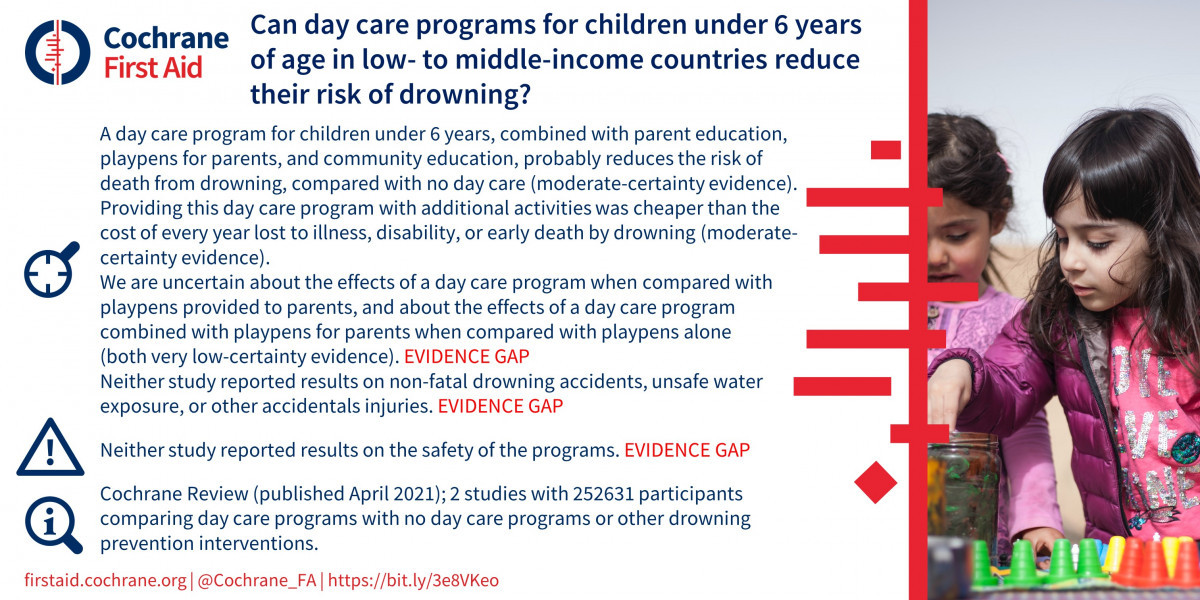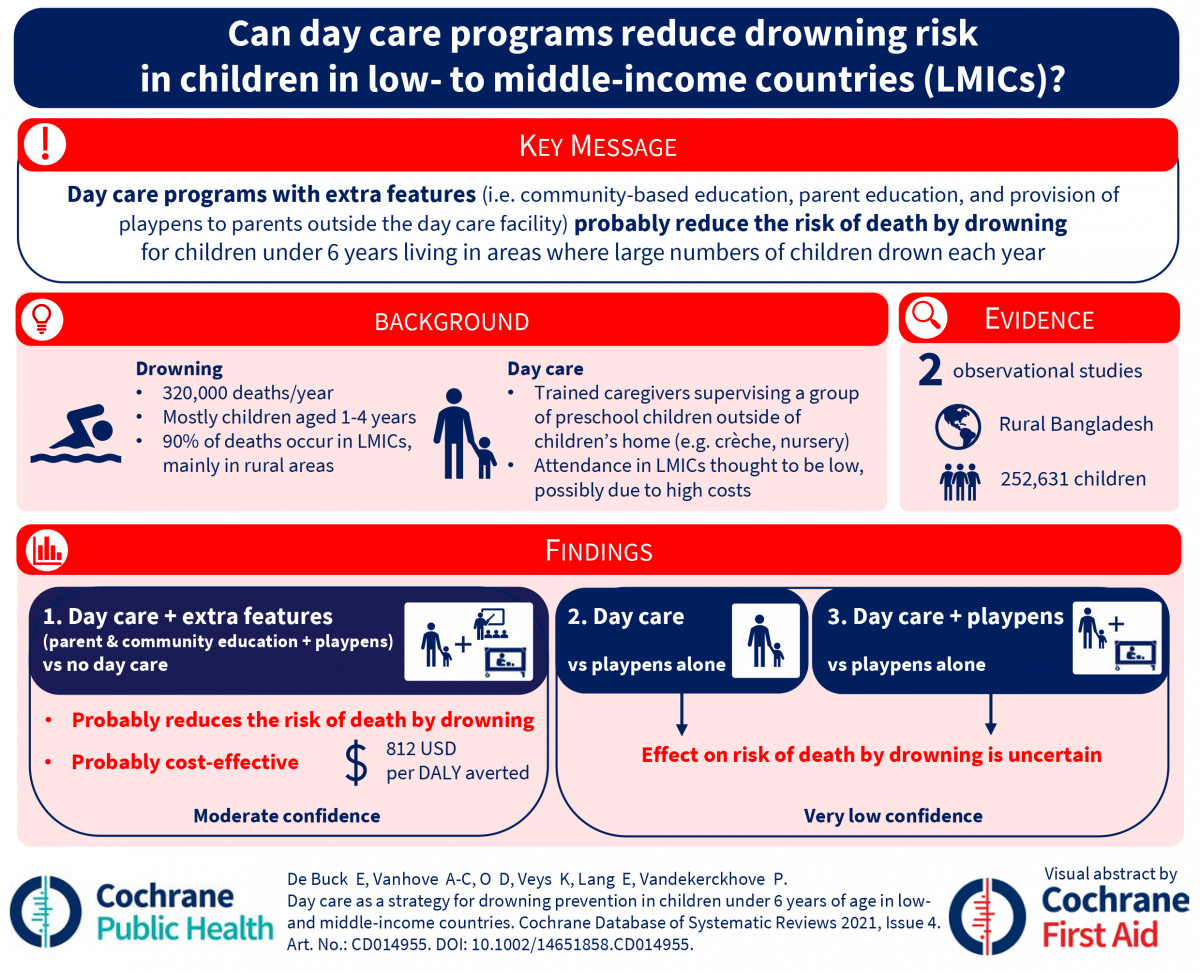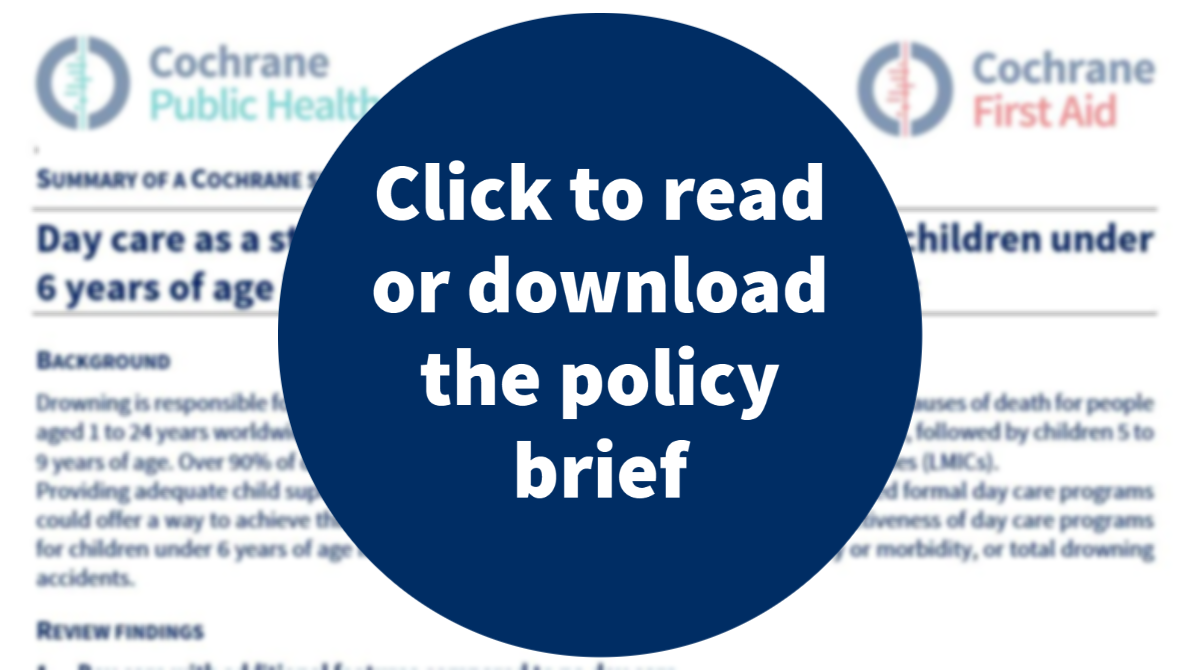
The World Health Organization (WHO) has issued a new recommendations which is supported by evidence from a Cochrane Public Health review.
From this year on, 25 July marks the new UN-recognised "World Drowning Prevention Day". This global advocacy event serves as an opportunity to highlight the tragic and profound impact of drowning on families and communities and offer life-saving solutions to prevent it.

On World Drowning Prevention Day 2021, the World Health Organization launched its guideline on the provision of day-care and basic swimming and water safety skills training to prevent drowning. Cochrane Public Health and First Aid and its initiator the Centre for Evidence-Based Practice feel proud to have developed 2 systematic reviews to inform this guideline.
Cochrane has been a non-governmental organization in official relations with WHO since 2011, and a major aspect of this partnership is supporting WHO’s global health guidelines with relevant evidence synthesis.
Cochrane review on day care provision
The WHO guideline contains evidence from the review 'Day care as a strategy for drowning prevention in children under 6 years of age in low‐ and middle‐income countries'. Cochrane Public Health group have joined focuses with Cochrane First Aid to ensure a successful dissemination of review finding.


WHO guideline recommendation on daycare provision
Based on the review's findings and the overall balance between the desirable and undesirable effects of day care provision, the WHO guideline recommends day care for children under 6 years of age as a drowning prevention strategy in countries with a high burden of drowning (strong recommendation; moderate-certainty evidence).
These day care programs must be developed and regulated with a main focus on quality (e.g. safety and well-being of children, involving parents, addressing nutritional needs) and other aspects (e.g. equitable staff treatment, open during periods of high drowning risk for drowning, measures to minimize the risk of spread of infectious diseases).
Cochrane is extremely proud of this valuable work and our continued partnership with WHO and between Cochrane Groups.


